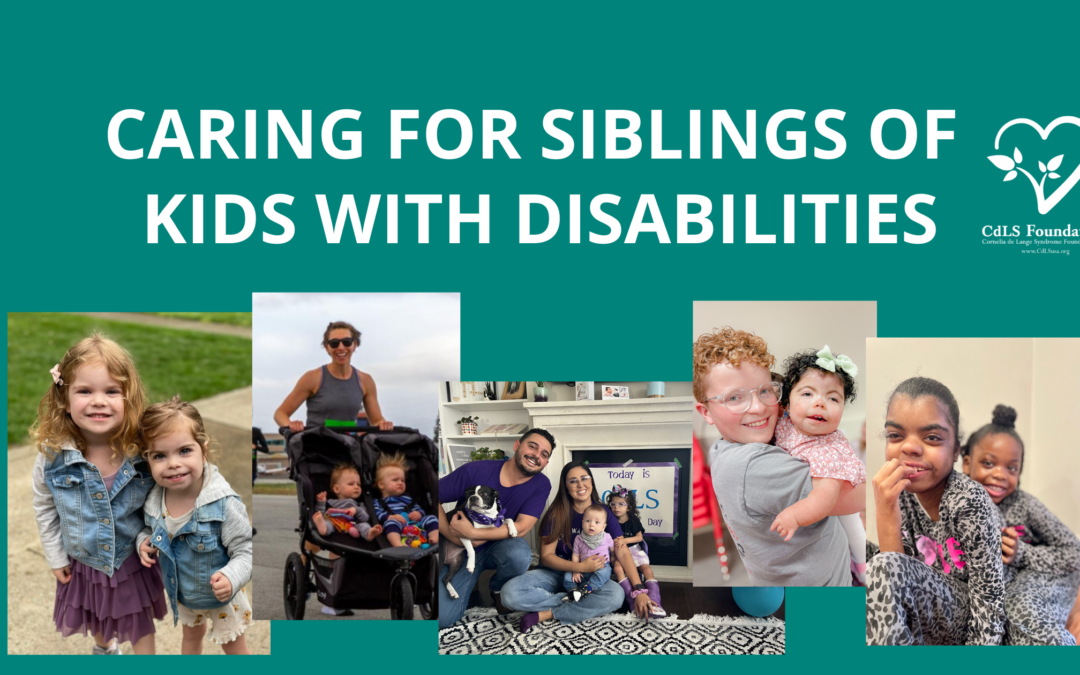Medically reviewed by: Carolyn Sewell-Roberts, LCSW, Cerebral Palsy (CP) Care at Nemours Children’s Health
As a parent, you want to give equal attention to all your children. But when parenting a child with special needs, that can be hard. It may feel like there is never enough of your attention to go around — and your other kids might begin to feel left out.
It can help you to understand what your typical developing child or teen might be thinking and feeling.
Here is what might help kids at different ages and stages of development.
How Can I Help My Preschooler?
- Set aside time together. Preschoolers often feel that everything is about them and what they want.
- Explain honestly and simply. When kids ask about their sibling’s abilities, explain the condition using simple language in a way they can understand. Use real words, like “CdLS” instead of “boo-boo.”
- Offer reassurance. Kids this age are “magical thinkers” — so, the drink poured at the tea party is hot and the monsters under the bed are very real.
How Can I Help My School-Age Child?
- Speak in age-appropriate ways. As kids get older, they will want to understand more about a sibling’s condition. Don’t be afraid to answer questions.
- Make memories together. Encourage your child to read books to their siblings, build block towers, or do crafts together.
- Role play explaining to others. Kids this age start having to explain their sibling’s condition to their peers. Some friends might ask rude questions or even engage in bullying behavior, which can leave your child feeling embarrassed, angry, or guilty. Help your child practice things to say.
- Handle sibling rivalry. Sibling rivalry also builds at this age, so don’t be surprised if kids act jealous of their brother or sister. Remind your child that they have other opportunities that their sibling does not. Fair does not always mean equal.
How Can I Help My Teen?
- Set reasonable responsibilities. Don’t ask too much. Make certain responsibilities, such as babysitting, a choice. This will help teens feel that they have control over how much they help.
- Don’t ask for “perfection.” Don’t set unrealistic goals when it comes to schoolwork or extracurricular activities.
- Encourage safe exploration. Let your teen know that wanting more independence and experiencing more of the world is normal, healthy, and encouraged, within safe limits.
- Have a plan for the future. As teens near adulthood, they might start to worry about the future. Reassure your teen that whatever the future holds, you will create a plan that will work for everyone in the family.
Some siblings don’t let much bother them, while others are more sensitive and take things to heart. These kids need healthy ways to work through their emotions. Writing in a journal, being physically active, or doing creative arts like dance or music are good ways to handle strong emotions.
If you notice changes in your child’s sleep routine, appetite, mood, or behavior, it could be a sign of anxiety, depression, or another problem. If this happens, get help from a mental health provider for your child.
Do you have questions? Contact the CdLS Foundation’s Family Service team at familyservicesteam@CdLSusa.org

Recent Comments